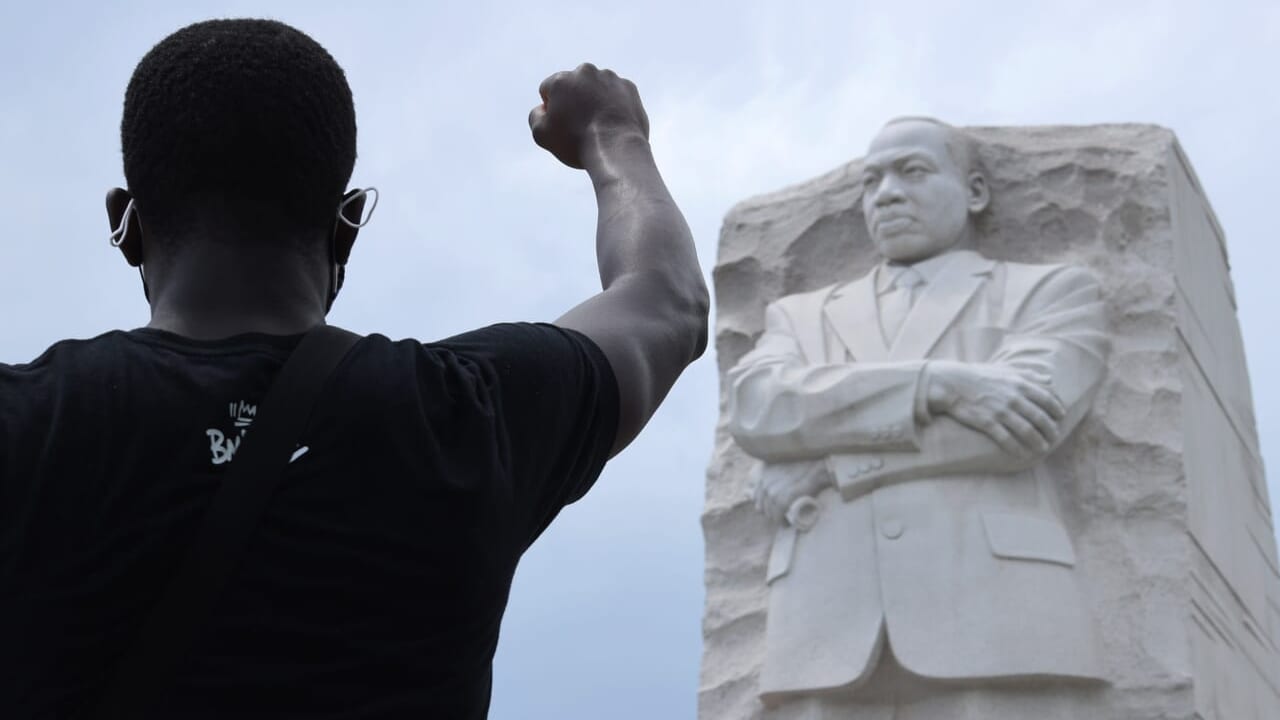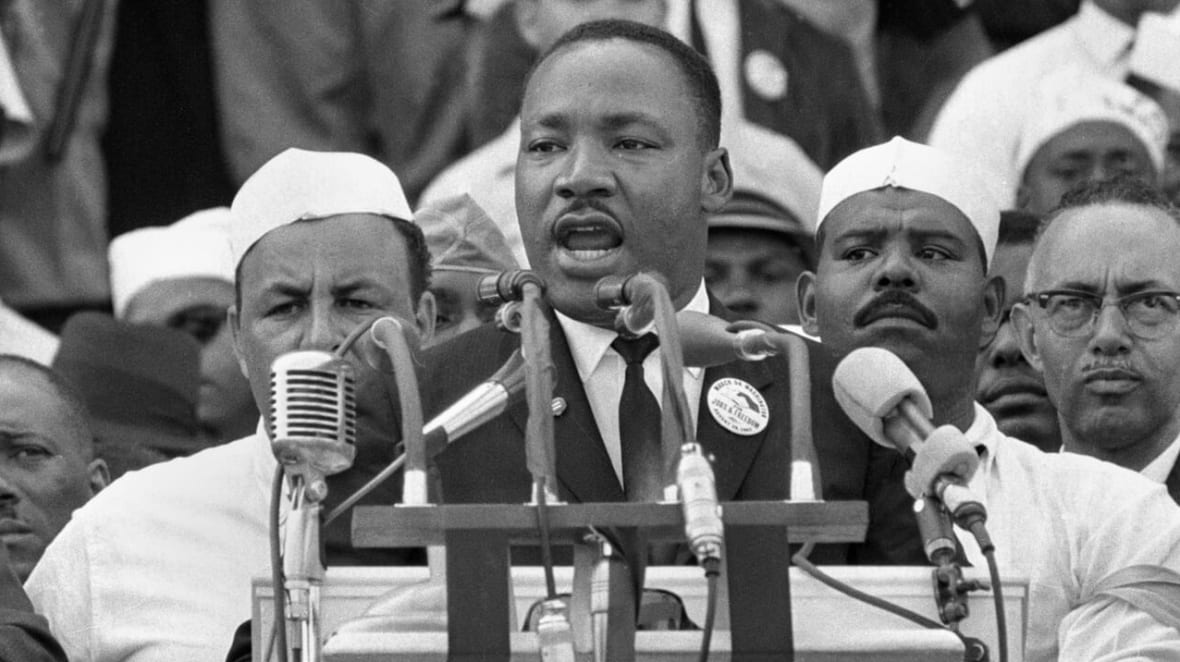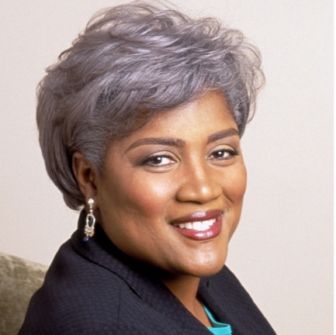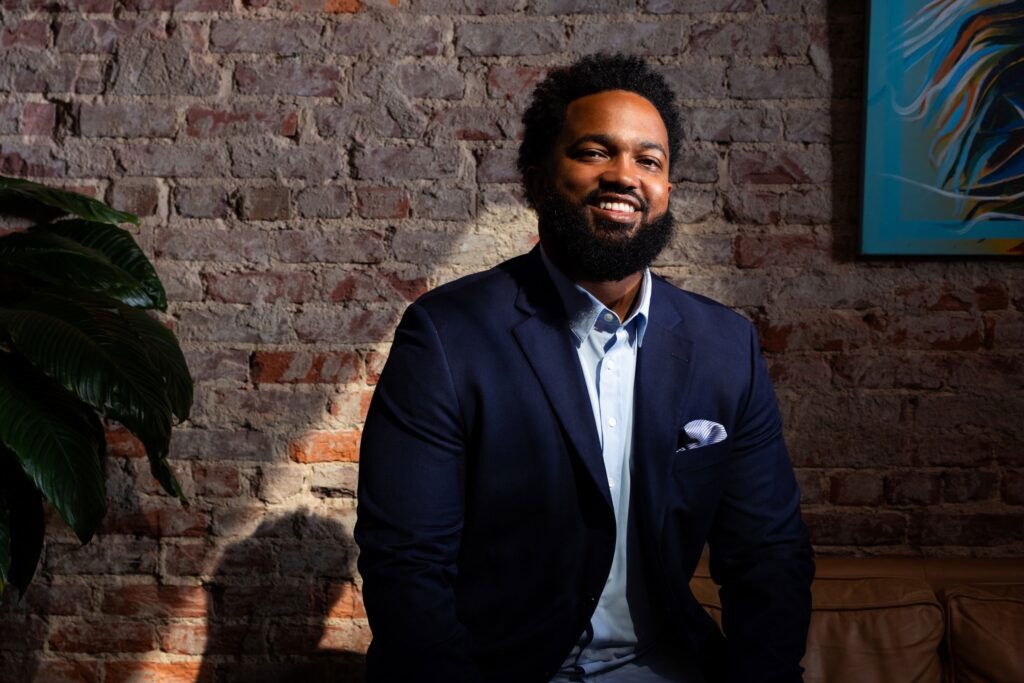On Martin Luther King Jr. Day, let’s dedicate ourselves to carrying on his work
OPINION: Let’s remember that Dr. King didn’t just dream about a better America and a better world — he worked with all his energy to make his dream a reality. The post On Martin Luther King Jr. Day, let’s dedicate ourselves to carrying on his work appeared first on TheGrio.

OPINION: Let’s remember that Dr. King didn’t just dream about a better America and a better world — he worked with all his energy to make his dream a reality.
Editor’s note: The following article is an op-ed, and the views expressed are the author’s own. Read more opinions on theGrio.
It’s been 40 years since Martin Luther King Jr. Day was designated as a federal holiday — more time than the tragically short 39-year span of Dr. King’s life before he was assassinated in 1968. We celebrate the holiday honoring one of the greatest Americans to ever live today.
It’s amazing to realize how much Dr. King accomplished before he could even reach middle age. He was a miracle worker, playing a leading role in the successful fight to win passage of landmark civil rights legislation that outlawed segregation and also outlawed racial discrimination in employment, housing, voting rights and other areas.
One of my proudest achievements was to mobilize public support and help lobby for congressional approval of the holiday to honor Dr. King and to play a key role in organizing marches on Washington in 1982 and 1983 that brought hundreds of thousands of people of all races together to call on Congress and the president to approve the federal holiday. Humanitarian and activist Stevie Wonder wrote a song called “Happy Birthday,” which enabled us to reach a new generation of activists. Together, with the leadership of Coretta Scott King and lawmakers in Congress, we finally got the votes to succeed.
The late Rep. John Conyers, D-Mich., one of the founders of the Congressional Black Caucus, introduced legislation to create the holiday just four days after Dr. King’s assassination. However, it took 15 years for the holiday to overcome strong opposition and be passed by Congress on a bipartisan basis. It was signed into law by Republican President Ronald Reagan at a ceremony I attended at the White House.
Many states were slower to create a holiday honoring Dr. King, but by 2000 all 50 joined the federal government and designated the third Monday in January as a state holiday as well.
There’s no question that Black Americans have made great progress since Dr. King’s day — in large part because of his courageous fight for freedom and justice for all, joined by many other Black leaders and our allies from other racial and ethnic backgrounds.
Black Americans now fill all sorts of important positions in government, business, nonprofits, education, academia, entertainment and sports that were largely closed to us when Dr. King was growing up. Americans have elected a Black president, vice president and hundreds of other federal, state and local officials since King’s death.
And yet, much still remains to be accomplished to make racial equality and equity a reality. Black Americans still lag far behind whites in income, family wealth, homeownership, educational attainment and other measures of the American Dream. We are overrepresented among the poor, victims of crime and police brutality, the imprisoned and those suffering from poor health.
The words of Dr. King in his famous “I Have a Dream” speech at the March on Washington for Jobs and Freedom in 1963 still ring true in describing the lives of millions of Black Americans. He said, “the Negro lives on a lonely island of poverty in the midst of a vast ocean of material prosperity … is still languished in the corners of American society and finds himself in exile in his own land.”
The fires of anti-Black racism still burn bright in the hearts of some Americans who proudly embrace the toxic belief in white supremacy, thinking they can lift themselves up by tearing Black people down.

We continue to see far more hate-motivated violent attacks on Black Americans than space permits me to list.
To name just a few from recent years: the murders of nine Black worshippers by a white racist at the Mother Emmanuel A.M.E. Church in Charleston, S.C., in 2015; too many police killings of unarmed Black people, most notably the murder of George Floyd in 2020, which sparked massive protest demonstrations around the world; and the murders of 10 Black people and the wounding of three by a white supremacist at a supermarket in Buffalo, N.Y., last May.
Affirmative action programs so crucial to Black progress and equity are under relentless attack and may soon be outlawed in college admissions by the U.S. Supreme Court. Racial gerrymandering continues to keep Blacks from having fair representation in Congress.
Largely peaceful Black Lives Matter protests seeking racial justice following George Floyd’s murder were denounced by some of the same Republican elected officials who later minimized the violence of white rioters who attacked the U.S. Capitol on Jan. 6, 2021 seeking to overturn then-President Donald Trump’s election defeat.
And Republican leaders in the House of Representatives will likely focus on cutting or reducing funding for programs that benefit Americans in need (who are disproportionately Black) while championing massive tax cuts for wealthy Americans.
If Dr. King were still alive and well, he would undoubtedly lead the charge against efforts to turn back the clock on the progress our nation has made in the crusade against racism and for a better America. In his absence, the torch has been passed to all men and women of all races who believe, as he said, that “the arc of the moral universe is long, but it bends toward justice.”
Let’s remember that Dr. King didn’t just dream about a better America and a better world — he worked with all his energy to make his dream a reality. He marched, he organized, he built coalitions across racial lines, and he effectively lobbied white politicians — from presidents to members of Congress to state and local officials.
On this Martin Luther King Jr. Day, let’s all dedicate ourselves to carrying on the great man’s work by heeding the words of his “I Have a Dream” speech, in which he said: “Now is the time to make real the promises of democracy. … Now is the time to lift our nation from the quicksands of racial injustice to the solid rock of brotherhood. Now is the time to make justice a reality for all of God’s children.”

Donna Brazile is an ABC News Contributor, veteran political strategist, an adjunct professor at Georgetown University, and the King Endowed Chair in Public Policy at Howard University. She previously served as interim Chair of the Democratic National Committee (DNC) and of the DNC’s Voting Rights Institute. She managed the Gore campaign in 2000 and has lectured at more than 225 colleges and universities on race, diversity, women, leadership and restoring civility in politics. Brazile is the author of several books, including the New York Times’ bestseller “Hacks: The Inside Story of the Break-ins and Breakdowns That Put Donald Trump in the White House.” @DonnaBrazile
TheGrio is FREE on your TV via Apple TV, Amazon Fire, Roku, and Android TV. Please download theGrio mobile apps today!
The post On Martin Luther King Jr. Day, let’s dedicate ourselves to carrying on his work appeared first on TheGrio.












